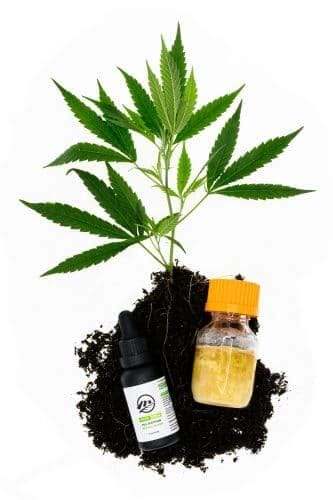What is a commodity?
As stated in a previous article, and according to the Merriam-Webster dictionary, a commodity is an economic good such as a product of agriculture or mining. Products like grain, corn, oil, and coal. It can also mean something useful or valued. The convenience and/or advantage of commodities is the wide availability offered to the public at large.

For the first time under our U.S. Code, the 2014 Farm Bill defined “hemp” as distinct from “marihuana”. This legislation was intended to create an incentive and policy directive for the agricultural sector as a whole to consider hemp as a viable cash crop for multiple uses. With the intent to create a market for hemp and its downstream uses, Congress reinforced and broadened the agricultural policy of hemp in the 2018 Farm Bill. Included in this legal framework, the following components of the hemp plant are legal and no longer subject to CSA controls:
All derivatives…meaning:
– all extracts
– all cannabinoids
– all isomers
– all salts of isomers.
Considering the word “all” is pretty self-explanatory, there is no room for legal debate, is there?
From an Economics perspective, it’s unarguable that a successful business sells more products…not less. So now we must ask ourselves why operators wouldn’t want to produce and sell more marijuana products when that’s exactly what both consumers and investors want? Why wouldn’t they avail themselves of the tax advantages of hemp? Why would the marijuana operators claim that a federally legal industry is the problem?
Could it have anything to do with an overbloated government and their lobbyists doing everything in their power trying to control an industry that has the potential to generate billions of dollars (billions more than it currently does, that is)…and by trying to maintain control, the industry is overregulated and over-taxed which, in turn, is more costly to the operators? Let us not forget, we live in a society of “Bigs” where the “almighty” dollar continues to reign supreme!
What exactly is it that investors look for when assessing a market?
When an investor assesses a market, they first concoct a thesis, which is generally defined by a combination of existing facts and projected market trends. Both the facts (the legal framework) and the market trends (data) work closely together to shape modern day markets. In defining the hemp market, there are two essential theses to accept:

- Non-cannabinoid uses such as grain, fiber, hurd, and seed. These generally require a great deal of costly infrastructure and the corresponding adoption to become widespread (including what may come in the future).
- Cannabinoids are merely ingredients and, as such, the most significant federal cannabis reform has already been established in the outright legalization of cannabinoids under the prior Farm Bills, which removed all of these compounds from the Controlled Substances Act so long as they are derived from hemp.
If you accept the second thesis as true, then any company seeking to produce, market, and sell cannabinoid products (including the intoxicating ones), already has a federally legal pathway. On the other hand, while we’ve taken great strides for non-cannabinoid uses, the infrastructure, including the various types of machinery, is very costly and requires investors. Because of this, cannabinoids have remained the cash component of the hemp plant for the past many decades.
Now, before we continue on, let us not forget hemp has been a commodity for thousands of years and used for a variety of things from medicinal, to building materials, to textiles. Seriously, industrial hemp was utilized in building projects for thousands of years along with teas, tinctures, and clothing. There’s tremendous promise for hemp materials used for these same things today. The banning of this plant in the past, and the stigma of “green plant bad” placed on it was done by design. Hemp can be grown in almost every environment and used for thousands of products. If the vast population broke away from said stigma and realized this, it would cause a huge loss of revenue for the “Bigs” and potentially create self-sustaining communities. However, since we still live in the Matrix created for us, we need to understand dollars drive the markets and the consumers drive the dollar.

Would it surprise you to know that data suggests more and more consumers WANT products made from hemp? And why is that?
Through research, we have learned that we have been lied to about many things, including how beneficial naturals like hemp can be, all because of greed. This has caused a renewed interest on hemp production due to its positive environmental impacts, including removing toxins from soil and absorbing carbon dioxide from the air. It utilizes a significantly less amount of water than most other cash crops and is fast growing, which has caused it to move to a greater position of emphasis as more and more people are seeking healthier, chemical free alternatives in all aspects of their lives.
In the end and in my opinion, it makes the most sense to tell big government to step aside with their ever-changing regulations and over-taxation and say, “bring on the investors”.

